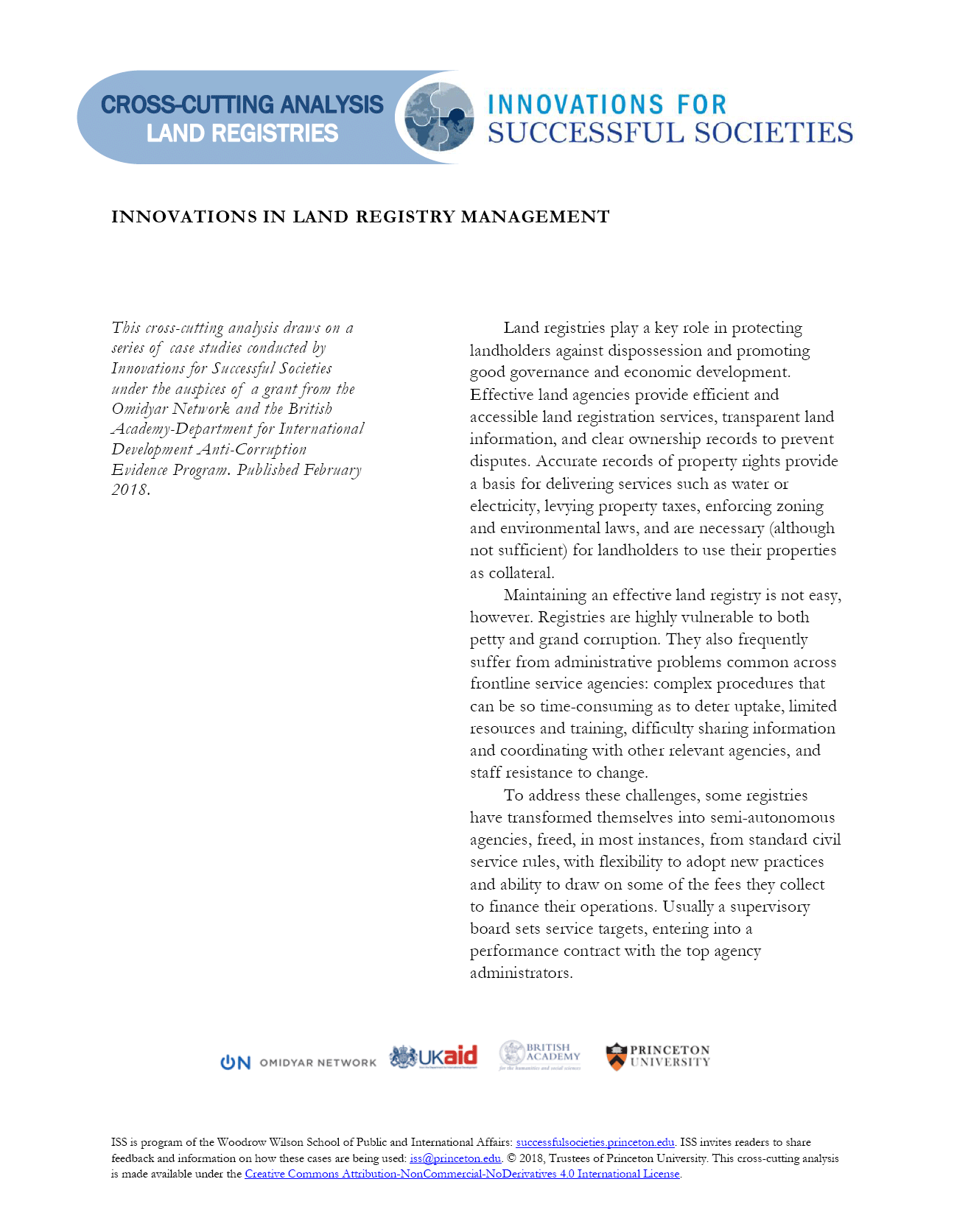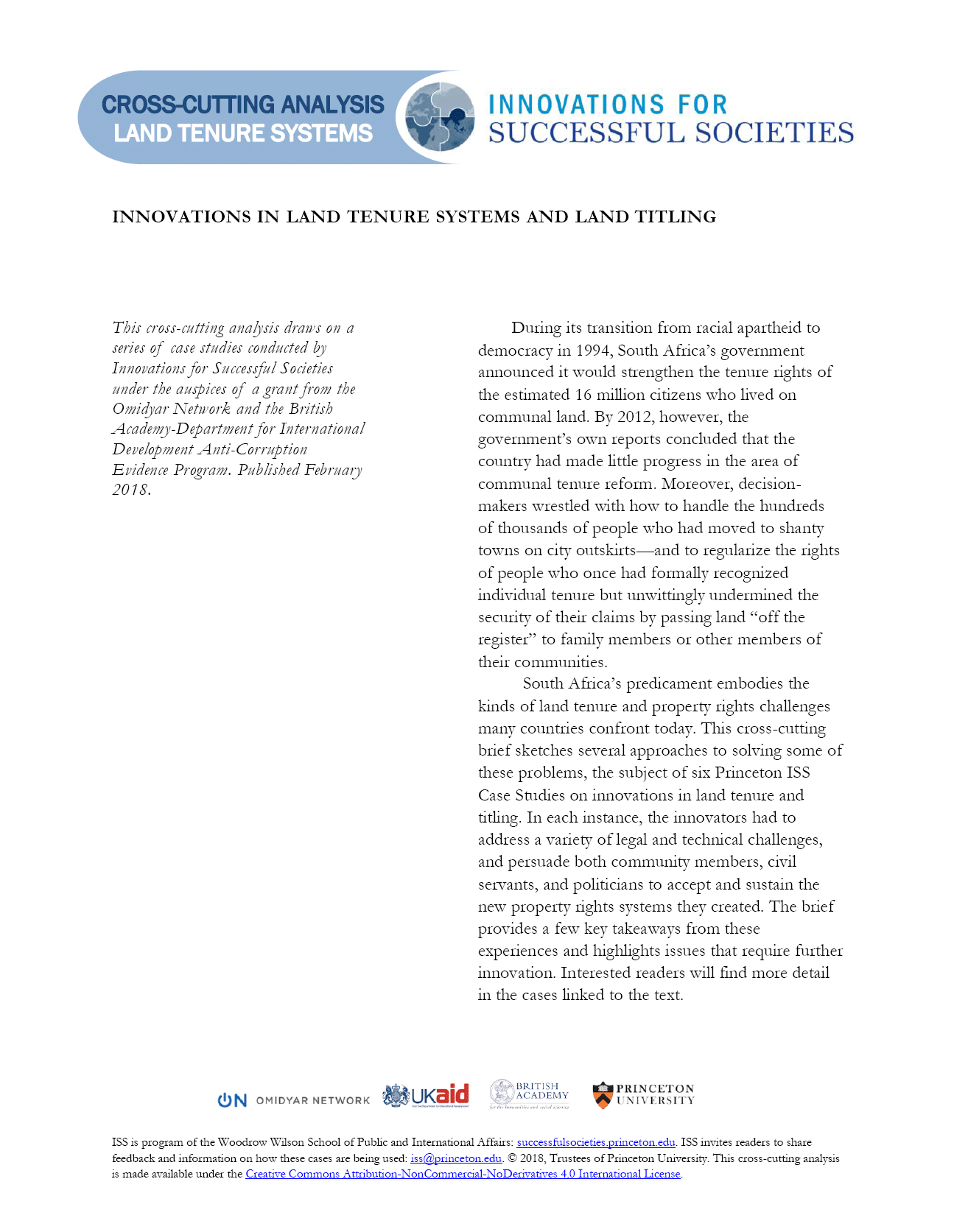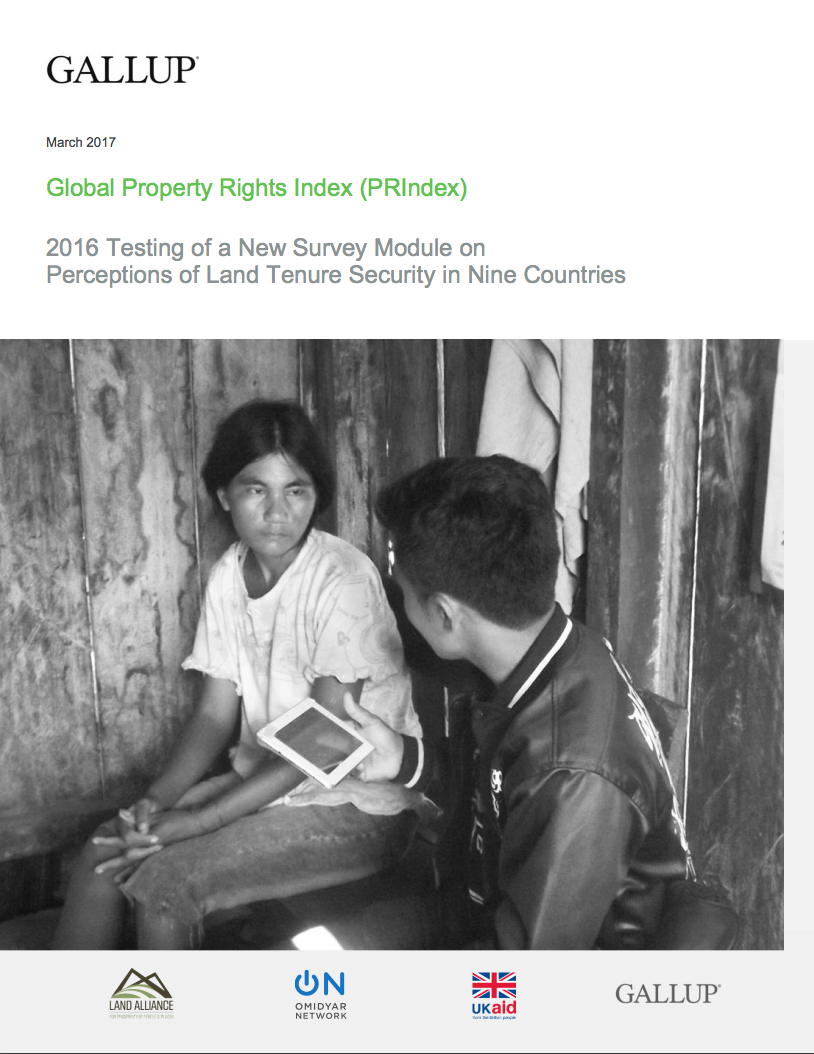Location
Omidyar Network is a philanthropic investment firm dedicated to harnessing the power of markets to create opportunity for people to improve their lives. Established in 2004 by eBay founder Pierre Omidyar and his wife Pam, the organization invests in and helps scale for-profit companies and nonprofit organizations that foster economic advancement and encourage individual participation across multiple investment areas, including microfinance, entrepreneurship, government transparency and property rights. Within property rights, Omidyar Network identifies and supports organizations that increase access to land and security of tenure, encourage fair laws, and advance awareness and formalization of rights for the poor. The organization currently supports Landesa, the Institute for Liberty and Democracy and the Foundation for Security, and is actively seeking new partners working to increase secure access to property rights. For more information, visit www.omidyar.com.
Members:
Resources
Displaying 1 - 5 of 5Putting Community and Rights on the Map in Southern Kenya
Throughout 2017, Spatial Collective applied new technologies to the data capture element of land registration in order to test whether affordable tools for documentation of land exist, whether these tools can reach the accuracy standards required by the state, and whether communities can replicate the work of a professional surveyor. To do this, our research looked into the land demarcation process, determined whether new technologies were of quality and met national standards, and gauged the most cost-effective tools which are widely accessible to local c
Innovations in Land Registry Management (Cross-Cutting)
Land registries play a key role in protecting landholders against dispossession and promoting good governance and economic development. Effective land agencies provide efficient and accessible land registration services, transparent land information, and clear ownership records to prevent disputes. Accurate records of property rights provide a basis for delivering services such as water or electricity, levying property taxes, enforcing zoning and environmental laws, and are necessary (although not sufficient) for landholders to use their properties as collateral.
Innovations in Land Tenure Systems and Land Titling (Cross-Cutting)
During its transition from racial apartheid to democracy in 1994, South Africa’s government announced it would strengthen the tenure rights of the estimated 16 million citizens who lived on communal land. By 2012, however, the government’s own reports concluded that the country had made little progress in the area of communal tenure reform.
Global Property Rights Index (PRIndex)
This report presents results from nationally representative surveys with 1,000 residents aged 15 and older in eight countries — Brazil, Colombia, Egypt, Greece, Indonesia, Nigeria, Peru and Tanzania — and with 3,000 residents in India. Each survey attained comprehensive coverage of both urban and rural areas of the country using multi-stage stratified cluster sampling.1 Standardized interviewer and supervisor training, as well as robust validation of data collection/data entry, help to ensure rigorous quality standards.
Global Property Rights Index (PRIndex)
This report presents results from nationally representative surveys with 1,000 residents aged 15 and older in eight countries — Brazil, Colombia, Egypt, Greece, Indonesia, Nigeria, Peru and Tanzania — and with 3,000 residents in India. Each survey attained comprehensive coverage of both urban and rural areas of the country using multi-stage stratified cluster sampling.1 Standardized interviewer and supervisor training, as well as robust validation of data collection/data entry, help to ensure rigorous quality standards.





